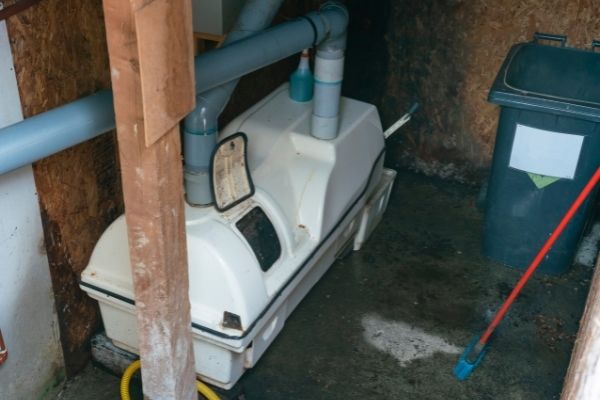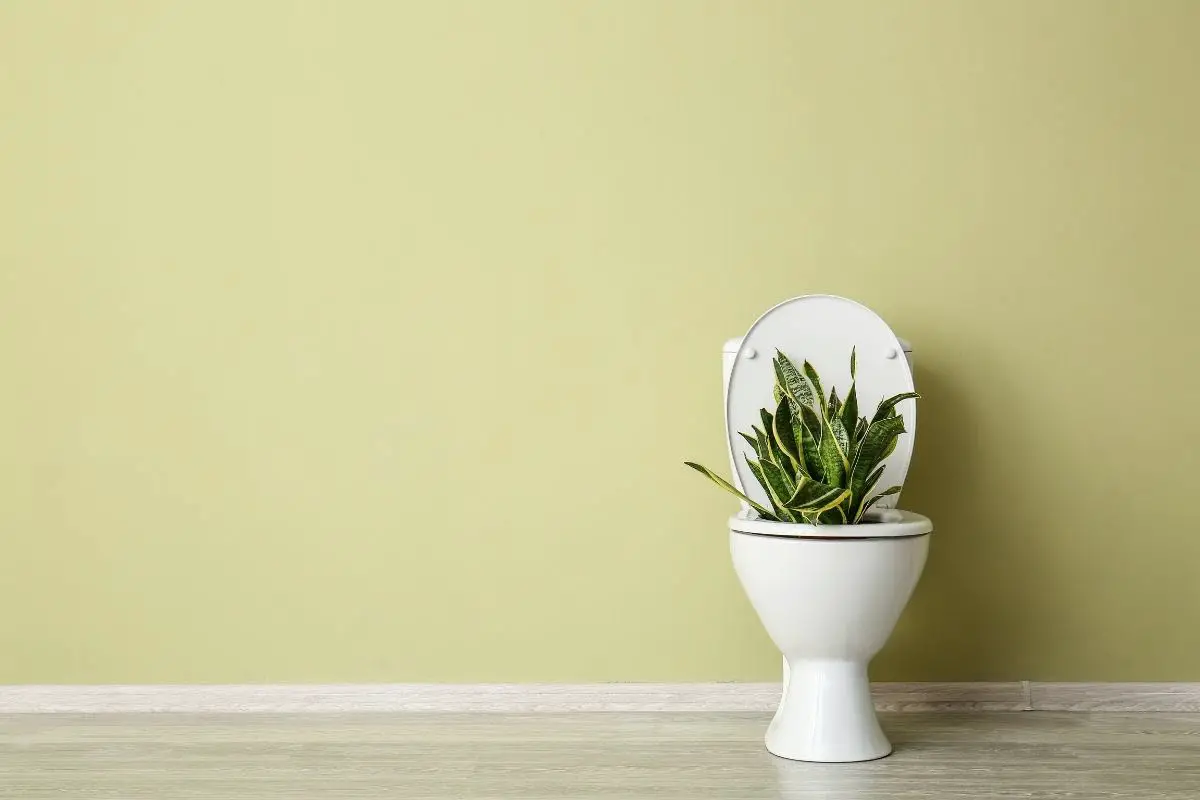Composting 101: Do Composting Toilets Smell?
I love the smell of toilets… said no one ever!!!
The idea of a composting toilet smell can be even scarier, but there is good news! From both an environment point of view and for your nose too!
According to the Environmental Protection Agency (EPA), residential toilets are the largest consumers of water in United States households. On average, toilets account for 30% of water used every day in the home!
Even for those dedicated to living an eco-friendly life, traditional toilets can feel like a necessary evil. The good news is that composting toilets are becoming more and more popular among everyday homeowners.

Despite what you (and many others!) might be thinking, switching to a sustainable composting toilet doesn’t mean sacrificing a clean, fresh-smelling bathroom.
Here’s everything you need to know about how composting toilets process waste and keep odors under control. Plus, what to do if your composting toilet does start to smell a little off.
How Bad Do Composting Toilets Smell?
Is the composting toilet installed properly and well-maintained?
If yes, then not at all!
While it’s hard to imagine bathroom waste not smelling foul (we’ve all walked into THAT portable toilet or outhouse), the “composting” part of a composting toilet is extremely important.
Just think about your backyard compost pile.
Does it have an aroma? Yes. But a healthy compost pile won’t smell much different than fresh garden soil. The same is true of a properly functioning composting toilet.
While it might be counterintuitive, a composting toilet is much more likely to give off a urine smell than anything else. After all, the urine is not being composted while the solid waste is. This typically occurs in toilets with separate liquid and solid compartments.
That doesn’t mean your composting toilet will never produce foul odors. However, these systems are expertly designed to contain and divert bad odors so that the users never smell them.
How Does a Composting Toilet Contain Odors?
The natural composting process is largely responsible for keeping unwanted odors at bay. Any smell that does occur in your composting toilet, though, will be quickly disposed of through an outdoor vent.
Using a combination of vents, fans, and negative air pressure, a high-quality composting toilet system ensures that nasty smells never rise up through the toilet bowl itself.
Can You Smell A Composting Toilet From Outside?
You can rest easy knowing that your bathroom won’t fill up with the aroma of the entire household’s private business. But those odors need to go somewhere, right?
Almost all composting toilets feature an air vent that connects to the exterior of the home, RV, or boat. This vent is responsible for taking any foul scents and getting them as far away from the interior living space as possible.
If someone stands directly next to this vent, they may notice a slightly unpleasant odor. So picking a strategic, out-of-the-way location for the vent is an important part of the installation process.
With that said, a strong stench coming from your composting toilet or the exterior vent is a clear sign that something is wrong with the system itself.
Do Composting Toilets Attract Insects?
A composting toilet will NOT attract insects or other pests as long as it is working properly.
Insects are attracted to waste via smell. Most insects will be unable to find your composting toilet as long as potential odors are kept under control.
With that said, you should still take precautions to keep insects from stumbling across your composting toilet and the contents within.
Periodically check the vents connected to your toilet system to ensure there’s no way for flies and other insects to get inside. It’s also a good idea to check for access points throughout your bathroom.
What To Do If Your Composting Toilet Smells Bad
Experienced gardeners know that stinky compost is not healthy compost. And the same principles can be applied to any self-contained compost system.
A noticeable odor coming from your composting toilet bowl or vent shouldn’t be ignored. It’s almost always a symptom of something bigger going on.
Common reasons a composting toilet may smell is an issue with the venting system or fan (such as a blockage) or an imbalance in the waste compartment.

Fixing a fussy composting toilet is rarely as simple as calling the local plumber. Fortunately, there are a number of online composting toilet tips available from manufacturers and owners alike.
Foul-smelling compost may be the result of too much or too little moisture. Adding supplemental composting toilet enzymes can boost bacteria production. As a last resort, consider “restarting” the toilet by safely disposing of the existing waste and cleaning the internal compartment.
For persistent odors, it may be necessary to hire a professional contractor to inspect the system vents and check for any other issues.
Frequently Asked Questions
Does a composting toilet require a septic tank?
No. One of the biggest benefits of using a composting toilet is that it doesn’t require a septic tank to process wastewater.
There are pros and cons to both composting toilets and septic tanks. Be sure to do your research before deciding which system is right for you and your home!
How do you clean a composting toilet?
Keeping a composting toilet clean is relatively easy. The most labor-intensive part tends to be cleaning the toilet bowl and seat (especially if you have a waterless system).
Be aware of what cleaning solutions you use in and around your composting toilet. The wrong chemicals could harm the beneficial bacteria inside the composting compartment.
For the best results, check with the manufacturer of your particular toilet for a list of recommended cleaning products. In a pinch, plain water or diluted vinegar is safe for the vast majority of systems!
Can you put toilet paper in a composting toilet?
Yes! Paper products, including bathroom tissue, are compostable.
You may notice that some toilet paper is advertised specifically for use in RVs, campers, and boats. The main difference between these products and “normal” toilet paper is the speed of decomposition.






